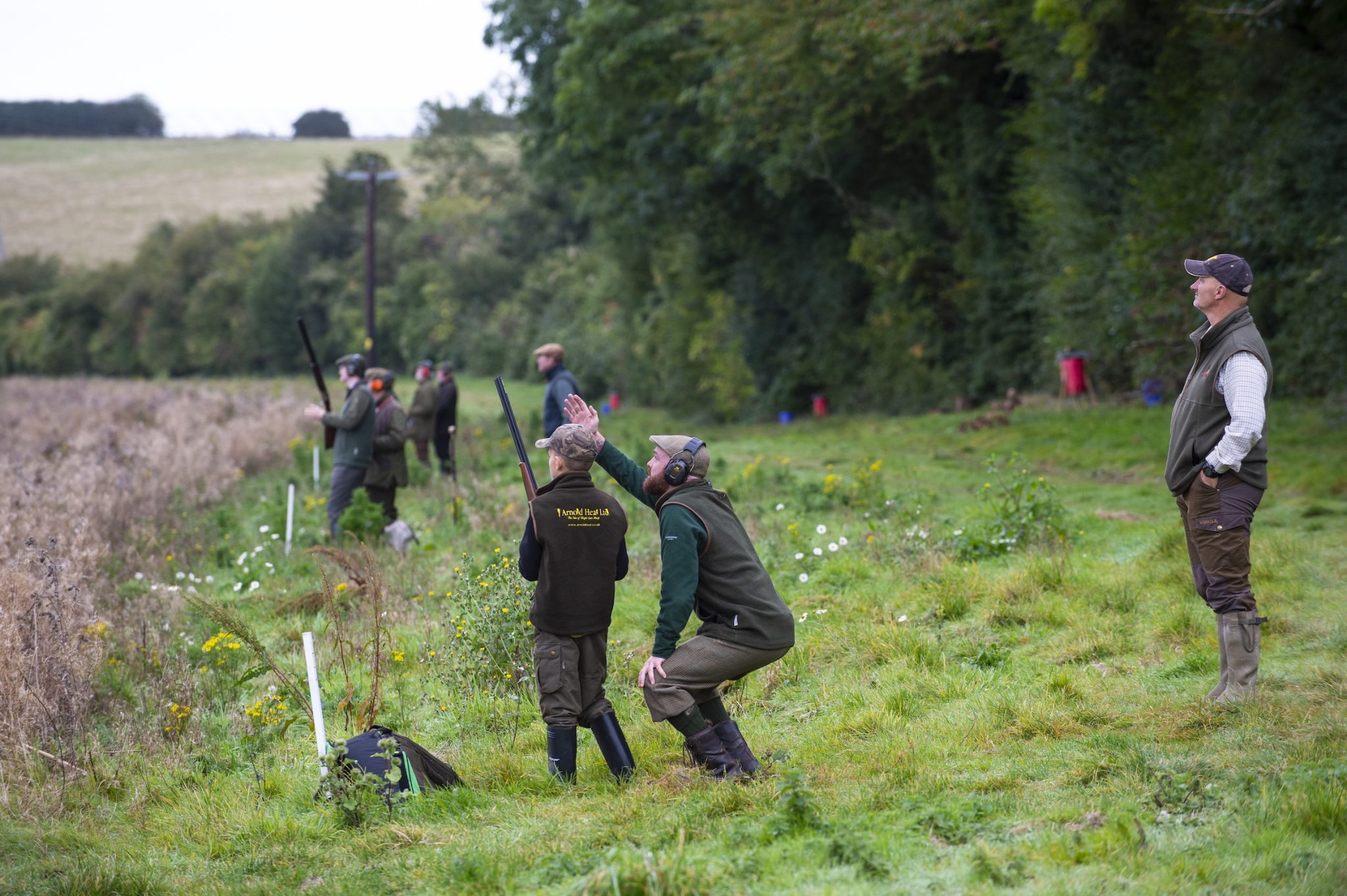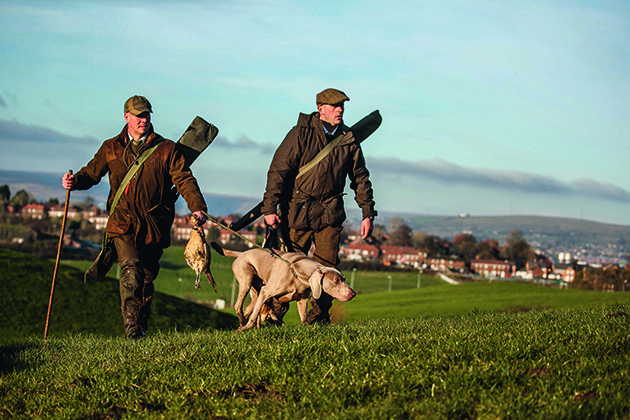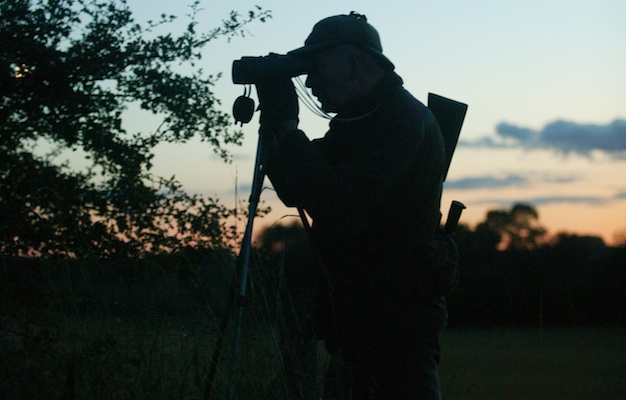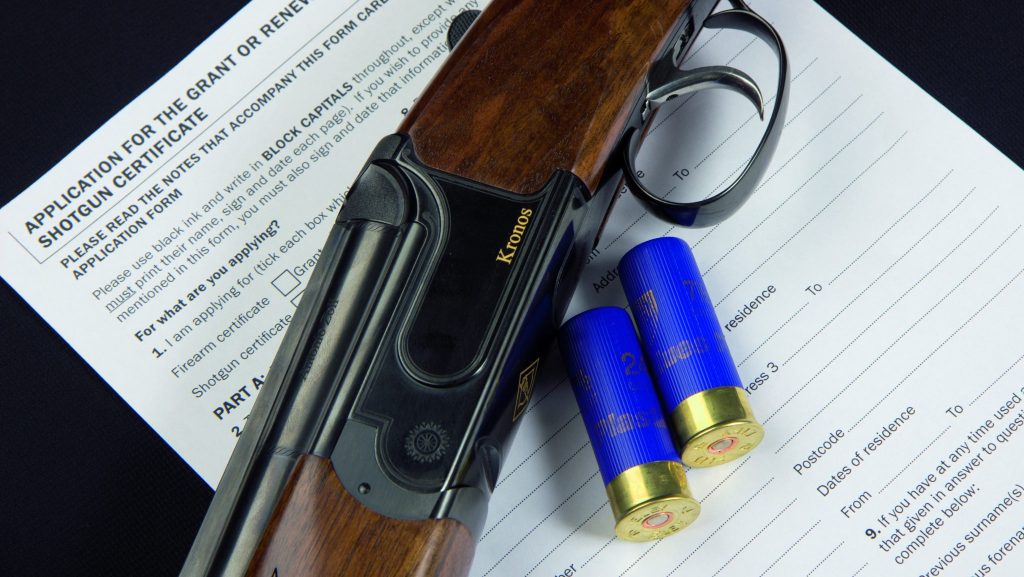Is it law that we should carry our shotgun/firearm certificates with us every time we go out with the gun?…
The countdown is on for The British Shooting Show – book tickets online today and save on gate price!
How certain police forces are putting obstacles in the way of getting a firearms licence
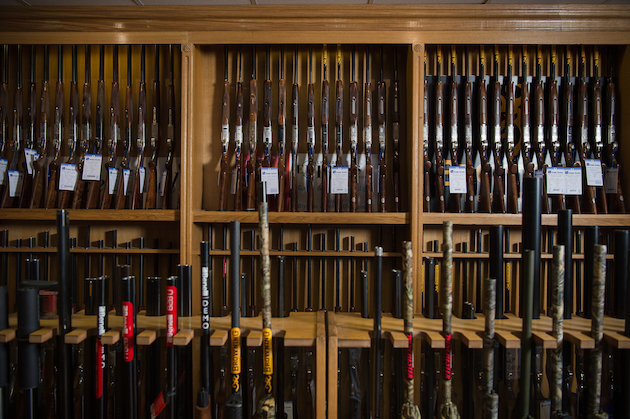 Racks of guns in York gunshop
Racks of guns in York gunshop
Sometimes you wonder who makes the law. Is it Parliament or is it the police? Your MP thinks it’s him but in some cases if your Police and Crime Commissioner (PCC) doesn’t like what Parliament has decided he makes his own law. I thought it was the responsibility of the police to uphold and enforce the law, not make it, but perhaps that’s an old-fashioned concept.
Getting a firearms licence
Several forces have recently invented their own firearms licensing law. We’re talking about S26 of the Firearms Act 1968, which says your application is to be made on the prescribed form. Your application is valid in law provided you have completed the form correctly and included the photo and cheque. Demands by the police that you provide anything else are unlawful, however helpful they may be.
The underlying problem is simple. If there is an incident involving a shooting by a certificate holder with a medical problem, the police want the GP to take some of the blame. GPs don’t see it that way. They don’t mind taking money for making a report but they don’t want long-term responsibility.
A scheme introduced by the Home Office in April 2016 addressed some of the earlier problems. The GP was told about an application and invited to comment. They were also to put a marker on the patient’s record so that the police could be informed if a later medical condition was diagnosed. The British Medical Association (BMA, the union representing about 80 per cent of doctors) and the Royal College of General Practitioners (RCGP, the professional body) agreed there would be no expectation of a fee for this service.
Charges
That agreement didn’t last beyond the ink drying. Some GPs started levying a charge immediately while others abided by the agreement. Too few have applied, or intend to apply, a marker. The Local Medical Committee (LMC) in Lincolnshire went halfway and recommended the relatively modest fee of £40 £50 plus VAT. Other LMCs have refused to make a recommendation so GPs charge what they like, knowing the patient will probably have no option but to pay. With modern technology, it should be the work of minutes and cost pence to search a patient’s record for key words.
If you don’t declare a relevant condition the least that will happen is refusal or revocation of your certificate. In the worst case you could be prosecuted and get a criminal record. Don’t take the risk. Declarable conditions are not a bar to getting a certificate if they’re properly controlled.
Going too far?
- Lincolnshire Police were the first to break ranks and demand a medical input. They’ve gone further than the April 2016 agreement authorised and won’t grant a certificate until the GP has responded to the police request. They’ve had the good sense to talk to their LMC, which encourages GPs to participate at reasonable cost.
- Thames Valley has a hybrid scheme by which some applicants are forced to pay a fee while others don’t. Thames Valley, like some of the other forces mentioned, is a historically poor licensing performer.
- In May 2018, Merseyside Police decided to disregard S26 and demand a letter from the GP. They do mention that the BMA agreed this should be done without charge and give the alternative of providing your medical records, which you should be able to download.
- Also in May 2018, Kent Police introduced a new licensing procedure, which requires medical information to be verified by a GP. Their press release openly said they were flouting the official guidance, which had been agreed by police representatives. They then claim their licensing procedures are in accordance with the guidance. How can you trust police who make such statements?
- One reader has been charged £140 by his GP — a far cry from the Lincolnshire figure but not the highest to have been reported.
- Nottinghamshire Police introduced a similar policy in September 2018. Like Kent they have produced a pro forma letter for you to send to your GP. Like Kent’s, it makes no mention of the agreement struck by the BMA, RCGP, police and Home Office, which said there is no expectation of a fee. It’s a force that fails to impress; it has factual and legal errors on its website.
Legal challenge from shooting organisations
With these flagrant breaches of the law why has there been no legal challenge from the shooting organisations? The answer is no certificate holder has been willing to put their head above the parapet. We need somebody to do so; even if the organisation you belong to has no insurance cover, it might well fund an appeal anyway.
Getting a ‘coterminous’ firearms certificate: a combined firearms and shotgun certificate
If you’re a keen Shot with both firearms certificates and shotgun certificates, then it’s worth applying for what’s known as…
How you can help
What else can readers do? Well, quite a lot. As officialdom isn’t doing anything to put matters right, the shooting community needs to put pressure on the PCC. The PCC’s function is to ensure policing meets the needs of the local community. They came into existence in 2012 and their purpose is not widely understood.
What matters is that they are elected, and the next elections are in May 2020. Most of them will seek re-election and they need our votes. The number of certificate holders in Kent and Lincolnshire exceeds the incumbent’s majority and the gap in Thames Valley is not wide. Given the poor turnout in 2016, a push by the shooting community in 2020 could unseat any PCC who is breaking the guidance or forcing shooters to pay a fee to their GP.
You don’t have to wait until 2020 to express your view. Nor do you need to be in the process of renewing your certificate. Send the PCC an email now. BASC recommends writing to your MP as well.
As we were going to press, news came in that Cheshire Constabulary is also insisting on a GP’s letter.
Related Articles
Get the latest news delivered direct to your door
Subscribe to Shooting Times & Country
Discover the ultimate companion for field sports enthusiasts with Shooting Times & Country Magazine, the UK’s leading weekly publication that has been at the forefront of shooting culture since 1882. Subscribers gain access to expert tips, comprehensive gear reviews, seasonal advice and a vibrant community of like-minded shooters.
Save on shop price when you subscribe with weekly issues featuring in-depth articles on gundog training, exclusive member offers and access to the digital back issue library. A Shooting Times & Country subscription is more than a magazine, don’t just read about the countryside; immerse yourself in its most authoritative and engaging publication.



